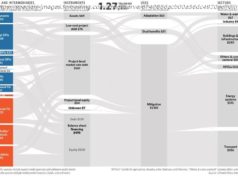Every nuclear test by North Korea has been followed by sanctions, Park said. Yet, the North Koreans have developed their missile
If sanctions against an enemy can be thought of as antibiotics, then North Korea has become drug-resistant. Indeed, North Korea is a “superbug,” virtually impervious to sanctions, according to John Park.
Park is the director of the Korea Working Group at the Kennedy School of Government, Harvard University. He spoke on January 14 at a meeting of the Boston Committee on Foreign Relations.
Every nuclear test by North Korea has been followed by sanctions, Park said. Yet, the North Koreans have developed their missile and nuclear capabilities with those constraints, making rapid progress.
Park’s research has been sourced from among the approximately 30,000 North Korean defectors living in South Korea, especially those who are former North Korean business people who worked with trading companies in China. Those individuals have been the agents of procurement, he said, which led to the development of North Korea’s missile and nuclear capabilities.
North Korea bought its components form Western and Asian companies operating in China. Those companies, he said, we eager to do business because they were hoping to grow their Chinese revenues. As a result, North Korea obtained neither old nor obsolete technology, but the “good stuff,” Park said.
Here’s how it worked: North Korean businesspeople embedded in China paid a Chinese company a commission. That company went, for example, to a German company to purchase the goods. The Chinese company would outsource to a China logistics company, which would ship the goods to North Korea. North Korean agents in China operated with diplomatic credentials and could not be thrown out of the country.
North Korea didn’t even need to pay for its components up front. In some cases, Park said, private Chinese companies financed the transactions, providing loans to the North Koreans.
“This is all normal,” Park said.
“Any foreigner doing business in China would follow the same practices,” he said, “which is disturbing.”
Sanctions are designed to make it risky to do business, Park said, which is why Iranian business partners were scared off by U. S. sanctions prior to President Obama’s 2015 deal with Iran. But North Korea’s only concern was China’s legal system, which was susceptible to corruption.
This mode of business has been going on for decades, he said, and the North Korea government could use China’s monetary system for moving currency.
Globalization and the huge volume of trade through ports such as Hong Kong made it impossible to search every container. Many of the components are small and easily hidden among the volume of benign and legal goods, Park said.
It was not prohibitively expensive for North Korea to develop these capabilities, since it was sourcing high-technology components that are readily available from western and Asian sources, Park said.
Read the full article here by Robert Huebscher of Advisor Perspectives






